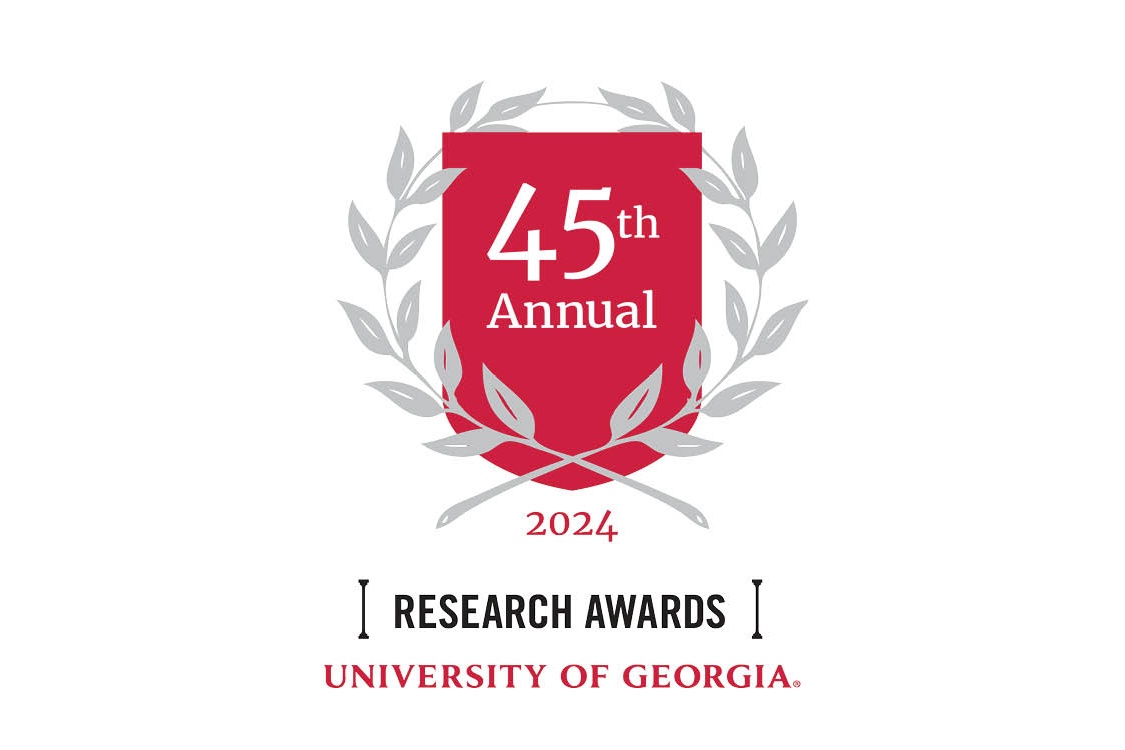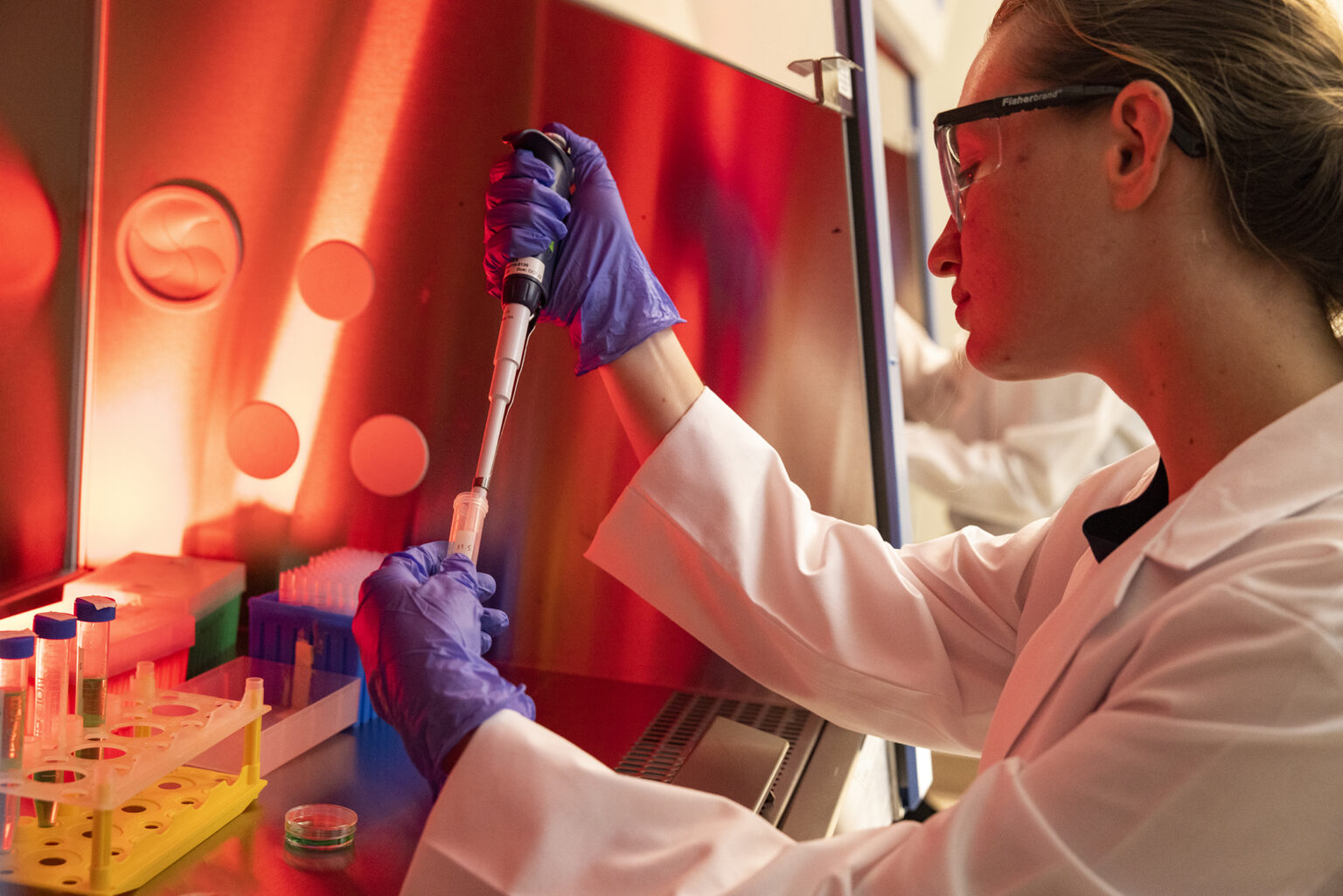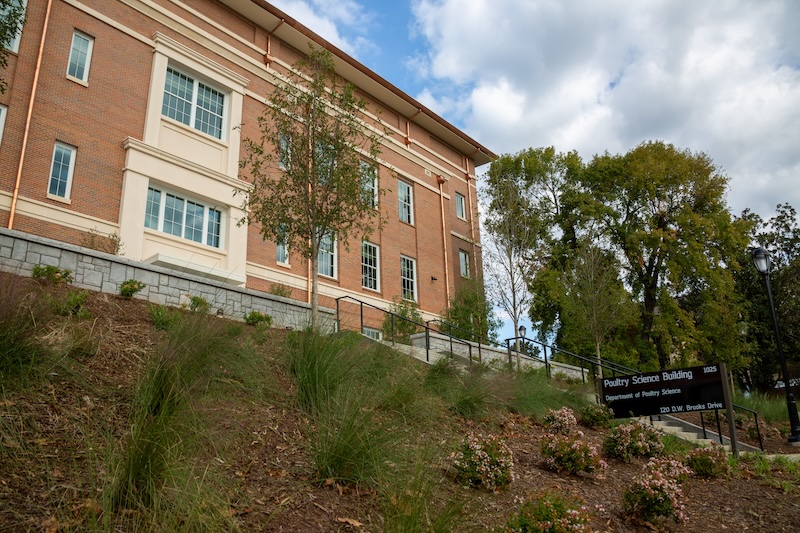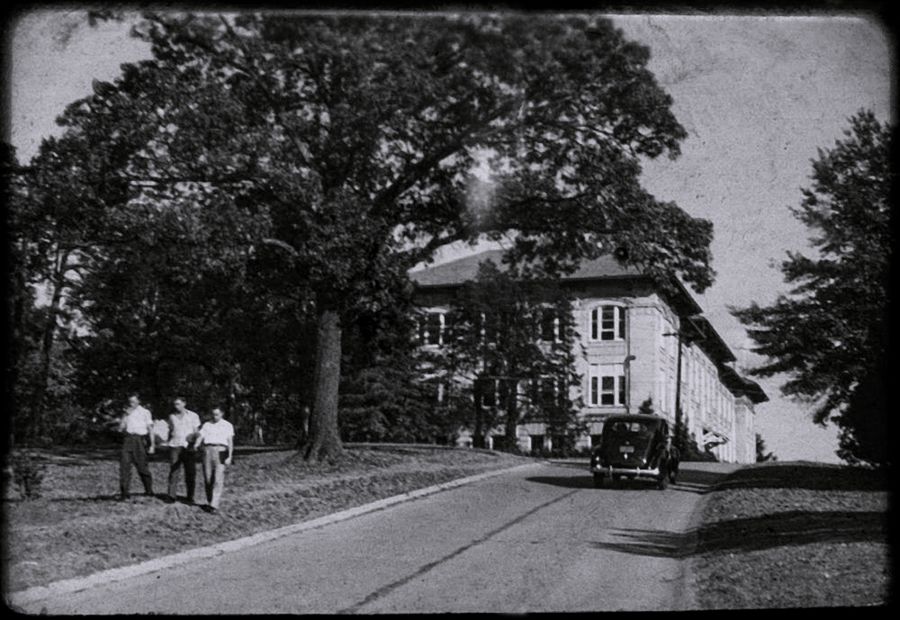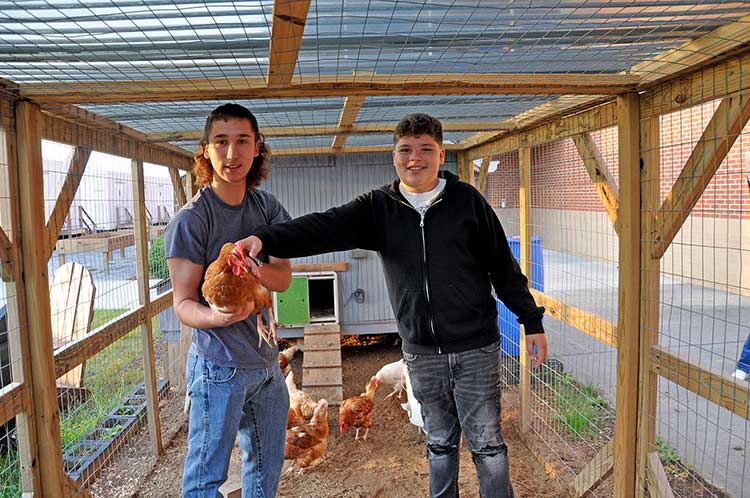After just two days of developing in the egg, a chicken’s heart beats. Students discovered the beating organ firsthand after cracking open eggs to learn about embryo development in “Chickenology,” a seminar course offered by the University of Georgia College of Agricultural and Environmental Sciences.
“Does it hurt?” asked some of the students as they watched the heart throb through a microscope.
“It can’t feel it. The nervous system isn’t developed at this stage,” said Robert Beckstead, poultry science professor and researcher with CAES.
Like in human development, the heart is one of the first organs to develop in birds. It beats to circulate blood throughout the chicken’s circulatory system so it can grow into a healthy bird. Wings and eyes are easily seen by day six. The chick is ready to hatch after 21 days.
“Chickenology” is one of more than 300 seminars offered as part of UGA’s new First-year Odyssey program. Freshman seminars are designed to introduce students to the academic life at UGA. Small classes allow freshmen to engage with faculty and other first-year students while learning about the university’s unique academic culture.
“The goal is to get freshmen integrated into the university quicker and give students more one-on-one time with faculty members,” said Robert Beckstead, poultry science professor and researcher with CAES who teaches the “Chickenology” course. “Freshmen are fun in the classroom. Everything is new, and they like to ask questions and think about things.”
Freshmen are required to choose one seminar. What attracts them to “Chickenology?”
For Patrick Murray, an animal health major, the name sold him. “I thought this class would be fun. I never knew anything about chickens and it seemed more interesting than the other choices.”
Carlie Grubbs wanted to study something outside of her intended major -- athletic training. “I like anatomy and learning new things,” she said. “I knew I wouldn’t have another opportunity to take something completely different.”
Odyssey courses were offered for the first time in fall 2011. Classes are limited to 15-18 students. “The important thing is to engage them, but more importantly for me is to have them start thinking on their own and know that it is OK to question what they read and interpret what they see and hear,” Beckstead said.
Conversations in Beckstead’s classroom also include the families and communities tied to the students.
“I have a student whose grandmother sent her a book about chickens because she went home and told her about the class and what she was learning. They probably talked about hormones or something else we learned in class and now two people know more than they did before coming to this class,” he said.



